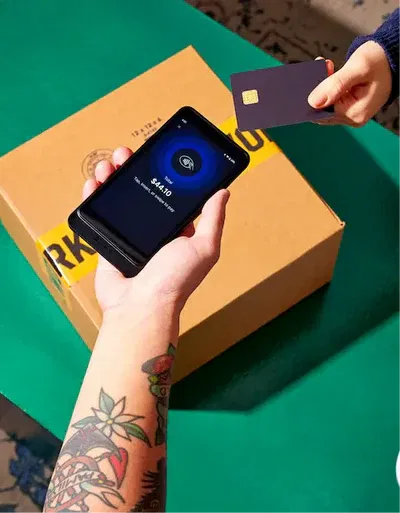Programming Tutorials: The Ultimate Beginner’s Guide to Learning Code
Why Programming Tutorials Are the Secret to a Better Career
Imagine learning how to build apps, websites, games—or automate your job—without ever stepping into a classroom. That’s the power of programming tutorials in today’s world. With the rising demand for developers and tech-savvy problem solvers in the United States, programming tutorials are more than just lessons; they are career-changing opportunities.
Whether you’re just starting to learn to code, exploring coding tutorials in your free time, or ready to dive into online programming tutorials that prepare you for jobs, this guide is for you. We’ll walk through platforms, strategies, tips, and resources that make programming learning fun, fast, and future-proof.
Ready to learn coding online? Let’s get started.
| Category | What to Do | What Not to Do | Why It Matters |
|---|---|---|---|
| Getting Started | Choose beginner-friendly platforms like freeCodeCamp or The Odin Project | Don’t jump between random tutorials or languages | Helps build a clear foundation and avoids confusion |
| Picking Languages | Start with HTML, CSS, JavaScript, or Python | Don’t start with advanced or niche languages like Rust or Haskell | Beginner languages are widely supported and easier to understand |
| Learning Format | Use interactive or project-based tutorials | Don’t rely solely on passive video watching | Engaging formats boost retention and understanding |
| Practice Method | Type out code manually and build small projects | Don’t just copy-paste or skip exercises | Hands-on learning makes concepts stick |
| Consistency | Dedicate at least 30–60 minutes per day | Don’t binge and then stop for weeks | Regular learning builds habits and reinforces progress |
| Community Support | Join forums like r/learnprogramming or Discord groups | Don’t isolate yourself | Collaboration accelerates learning and helps you overcome blockers |
| Project Building | Create real-world projects (e.g., to-do apps, calculators, weather apps) | Don’t wait to feel “ready” before you build | Projects show proof of skill and prepare you for freelancing or job applications |
| Documentation Use | Refer to official docs (MDN, Python Docs, etc.) often | Don’t ignore documentation or rely only on tutorials | Learning how to read docs is an essential developer skill |
| Certification | Use platforms offering completion certificates (Coursera, edX, freeCodeCamp) | Don’t pay for certificates you don’t need | Certifications can enhance resumes and demonstrate your learning commitment |
| Coding Platforms | Use sandboxes like CodePen, JSFiddle, or Replit for live practice | Don’t delay building due to setup complexity | Instant coding environments let you practice without installation barriers |
| Portfolio Development | Showcase your work on GitHub and personal websites | Don’t keep your projects private or unfinished | A visible portfolio improves job chances and credibility |
| Tech Stack Focus | Learn one stack at a time (e.g., MERN or JAMstack) | Don’t switch stacks every week | Depth over breadth leads to hireable expertise |
| Learning Resources | Combine structured tutorials with YouTube, blogs, and books | Don’t depend on one single resource | Multiple viewpoints deepen understanding and prevent learning gaps |
| Job Preparation | Study interview questions, build resume-ready projects | Don’t assume tutorials alone are enough | Preparing for real-world hiring scenarios is key for landing opportunities |
| Mindset | Stay curious, be patient, and embrace debugging | Don’t fear failure or get discouraged by errors | Growth mindset ensures longevity in your programming journey |
Why Programming Tutorials Work (Even for Complete Beginners)
If you’ve ever said, “I want to learn coding but don’t know where to begin,” then programming tutorials are your answer. They break complex topics into simple, digestible steps. From text-based walkthroughs to video guides, interactive coding environments to gamified challenges, programming tutorials can be tailored to your exact learning style.
Benefits of starting with programming tutorials:
- No need for prior knowledge
- Learn at your own pace
- Hands-on coding from the first lesson
- Ideal for U.S.-based learners balancing work, school, or family
Plus, many top code learning websites are free or low-cost. You can study coding anywhere with Wi-Fi.
Best Free Programming Tutorials and Platforms to Learn From
Here’s a comparison of popular platforms offering coding free online education:
| Platform | Best For | Key Features | Free? |
|---|---|---|---|
| freeCodeCamp | Web development & certifications | Hands-on projects, forums, certifications | 100% Free |
| Codecademy | Interactive coding tutorials | Interactive lessons, quizzes, pro path | Partial |
| The Odin Project | Full-stack web dev | In-depth curriculum, Git, HTML, JS | 100% Free |
| Coursera | Academic programming tutorials | University-backed courses | Partial |
| edX | Computer science fundamentals | Harvard, MIT-backed courses | Partial |
| Khan Academy | Absolute beginners & students | Intro to JS, animations, and Python basics | 100% Free |
Each offers valuable online programming tutorials to help you build skills and confidence.
How to Choose the Right Programming Tutorials for Your Goals
Not every tutorial code fits every learner. Here’s how to choose the right one:
- Start with Your End Goal: Do you want to build websites, mobile apps, games, or data dashboards?
- Pick a Language That Fits:
- HTML/CSS/JS for websites
- Python for beginners and data science
- Java or C++ for system development
- Swift for iOS apps
- Pick a Platform That Matches Your Learning Style: Video-based, text-based, or project-driven?
Choosing tutorials that align with your interests makes programming learning more enjoyable and effective.
Structured Learning Paths: From Basics to Advanced
You don’t need to know it all. You need the right sequence. Here’s a typical learning flow using programming tutorials:
- Intro to Programming (Logic, variables, control flow)
- Language Fundamentals (Python, JavaScript, etc.)
- Problem Solving (Algorithms, data structures)
- Build Projects (Real-world apps)
- Explore Frameworks (React, Flask, Node.js)
- Portfolio & Deployment (Showcase your work)
Structured tutorial code builds confidence and a tangible skillset. Sites like The Odin Project are great for that.
Best Websites to Learn Coding for Free in 2025
Here are the most trusted code sites for beginners:
These sites to learn to code offer beginner-friendly, high-quality tutorials that are regularly updated and trusted by developers.
How to Practice Effectively Using Programming Tutorials
To learn code online, watching isn’t enough. Here’s how to get the most from any coding tutorials:
- Type Along: Don’t just watch; write every line of code
- Modify Examples: Change values, create your own spin-offs
- Build Projects Early: Apply what you learn, even with small ideas
- Use Online Sandboxes: Replit, CodePen, JSFiddle
- Join Developer Communities: Reddit, Discord, Twitter, Stack Overflow
Effective practice turns passive learning into programming learning mastery.
Coding Tutorial Topics That Every Beginner Should Explore
Start with these essential topics found in most online coding tutorials:
- Variables & Data Types
- Functions
- If/Else Logic
- Loops
- Arrays & Objects
- DOM Manipulation (for web dev)
- APIs & Fetch Requests
- Responsive Design
If your programming tutorials include these, you’re on the right path to becoming a job-ready coder.
How to Learn Coding Online While Working or Studying Full-Time
If you’re juggling other responsibilities, here’s how to stay consistent:
- Set a weekly goal (e.g., 3 hours of code learning free tutorials)
- Pick one platform and stick with it
- Use mobile apps like Mimo or Grasshopper for learning on the go
- Track progress using a journal or spreadsheet
U.S.-based learners especially benefit from bite-sized programming tutorials that fit into busy schedules.
Top Code Learning Websites With Certification
Certifications boost your resume and motivate you to finish courses. Here are code learning websites that offer certificates:
| Platform | Certificate Type |
|---|---|
| freeCodeCamp | Completion Certificates |
| Coursera | University Certificates |
| Udacity | Nanodegrees |
| edX | Verified Certificates |
Certificates help validate your journey of programming learning, especially if you’re self-taught.
Online Programming Tutorials vs. Bootcamps: Which Is Better?
| Feature | Online Programming Tutorials | Bootcamps |
|---|---|---|
| Cost | Often free or low-cost | $5,000–$20,000 |
| Flexibility | Self-paced | Fixed schedule |
| Depth | Varies | Intense & job-focused |
| Certification | Available on most platforms | Yes |
Programming tutorials are better if you want flexibility and affordability. Bootcamps are best if you’re career-switching fast and can commit full-time.
Mistakes to Avoid When Using Programming Tutorials
- Skipping the basics to chase advanced concepts
- Copying code without understanding it
- Watching hours of tutorials without practicing
- Ignoring documentation and official docs
- Jumping between languages too often
Mastering the basics is the only way to truly benefit from programming tutorials and coding learn platforms.
Real Projects to Build After Finishing a Programming Tutorial
Try these beginner-to-intermediate projects:
- Calculator App
- Quiz Game
- Weather Dashboard using API
- Blog CMS with user logins
- eCommerce shopping cart
These are perfect for those who have gone through several free programming tutorials and want to test real-world skills.
Community and Mentorship: Accelerating Your Coding Journey
Join communities to get feedback and stay motivated:
Talking to other learners boosts your understanding of programming tutorials, helps you get unstuck, and shows you you’re not alone.
Summary Table: Programming Tutorials Success Blueprint
| Category | What to Do | What Not to Do | Why It Matters |
|---|---|---|---|
| Getting Started | Start with freeCodeCamp or The Odin Project | Don’t waste time comparing endless tutorials | Keeps you focused and makes learning actionable |
| Practicing | Build projects after each lesson | Don’t just consume without creating | Projects reinforce concepts |
| Staying Consistent | Learn coding online daily or weekly | Don’t binge and burnout | Steady pace wins the race |
| Community Engagement | Ask questions, share code, get feedback | Don’t isolate yourself | Learning accelerates in groups |
| Career Prep | Add certificates and projects to portfolio | Don’t wait to be “perfect” before applying | Real-world proof beats theory alone |
Frequently Asked Questions About Programming Tutorials
1. What are programming tutorials, and why are they important for beginners?
Programming tutorials are step-by-step educational resources—videos, written guides, interactive platforms—that teach you how to code. They help beginners learn to code by simplifying complex concepts into understandable lessons. Whether you’re a student, career-changer, or hobbyist, tutorials are a great entry point because they remove the intimidation factor and allow for hands-on practice. They are essential because they offer structure, clarity, and flexibility for self-paced programming learning.
2. Where can I find the best programming tutorials for free?
You can find coding tutorials on many reputable websites. The most popular code learning websites that are completely or mostly free include:
These platforms offer online programming tutorials that range from beginner to advanced, and many include certification, projects, and quizzes to reinforce your learning.
3. How long does it take to learn programming through tutorials?
The time it takes depends on how consistent you are. If you follow structured programming tutorials daily, you can build solid skills in 3–6 months. A consistent schedule of 5–10 hours per week using learn code online platforms can lead to job-ready skills within a year. However, if you’re only practicing casually, expect a longer timeline. The key is repetition, project-building, and ongoing practice—not just watching videos passively.
4. Are programming tutorials enough to get a job as a developer?
Yes, they can be—especially if you pair them with real-world projects. Many developers today are self-taught using programming tutorials, open-source contributions, and code sites. However, to stand out in the job market, you should also:
-
Build a portfolio
-
Learn Git and GitHub
-
Practice coding interviews
-
Earn certificates (optional but helpful)
-
Get involved in developer communities
Combining tutorials with practical application is the key to landing your first tech job.
5. Which programming language should I start with in tutorials?
It depends on your goals:
-
HTML/CSS/JavaScript: Best for web development
-
Python: Ideal for beginners, data science, automation
-
Java: Enterprise applications and Android apps
-
C++/C#: Game development and system programming
Most programming tutorials for beginners start with HTML, CSS, and JavaScript, then move to more complex topics. Python is also widely recommended because of its readability and community support.
6. Are online programming tutorials better than bootcamps?
Online programming tutorials are more flexible and budget-friendly. You can learn at your own pace, often for free. Bootcamps, while faster and more structured, can be expensive ($5,000–$20,000). If you’re self-motivated and organized, online tutorials will serve you well. Sites like Codecademy, edX, and Coursera also offer structured paths similar to bootcamps, making it easy to learn coding online effectively.
7. Can I get certified using programming tutorials?
Yes! Many code learning websites offer certificates of completion. For example:
-
freeCodeCamp: Offers verified certificates upon completing modules.
-
Coursera/edX: Provide university-backed certifications (sometimes free, often paid).
-
Udemy: Issues completion certificates after finishing paid courses.
These credentials are great to include on your resume or LinkedIn profile. They’re not mandatory, but they signal your commitment to programming learning.
8. How can I stay motivated while learning from tutorials?
To stay on track while using programming tutorials:
-
Set clear goals (e.g., finish a module or build a project each week)
-
Join communities (like Reddit’s r/learnprogramming or Discord groups)
-
Keep a coding journal or progress tracker
-
Celebrate milestones (like launching your first webpage)
Using gamified learning platforms like Grasshopper or SoloLearn can also help keep your motivation high.
9. How do I practice coding besides tutorials?
After following a few coding tutorials, you should start applying your knowledge by:
-
Building your own small projects (to-do lists, calculators, portfolio sites)
-
Cloning existing websites
-
Solving coding challenges on HackerRank or LeetCode
-
Participating in open-source projects
Real-world projects are where theory becomes skill, so don’t just rely on tutorials. Practicing consistently will improve your problem-solving and development speed.
10. What’s the difference between websites to learn coding and coding apps?
Websites to learn coding like freeCodeCamp or The Odin Project offer full, structured curricula and projects that you complete on a laptop or desktop. Coding apps, on the other hand—like Mimo or Grasshopper—are simplified, bite-sized lessons designed for mobile devices. Apps are great for review and short bursts of learning, but for serious progress, websites provide more depth and flexibility.
11. How can I choose the right programming tutorial for my skill level?
Look for beginner-friendly tags or intro courses when starting out. Platforms like Codecademy, Khan Academy, and W3Schools have “Introduction to…” or “Beginner” labels on their programming tutorials. If you already know the basics, move toward intermediate or project-based tutorials. Don’t pick tutorials that jump into frameworks (like React or Django) without understanding the language first.
12. Can children or teenagers use programming tutorials?
Absolutely! There are online coding tutorials tailored specifically for kids and teens. Websites like Tynker, Code.org, and even Khan Academy’s computer programming section offer age-appropriate content. These platforms use visuals, drag-and-drop logic, and gamified lessons to make learning web programming accessible and fun for young learners.
13. What are the best programming tutorials for web development?
If your goal is to build websites, follow this roadmap:
-
HTML/CSS Basics → W3Schools
-
JavaScript Fundamentals → Khan Academy
-
DOM Manipulation and Events → JavaScript.info
-
Responsive Design → freeCodeCamp
-
Frontend Frameworks (React) → The Odin Project
-
Deployment (Netlify, GitHub Pages) → Tutorials on YouTube or Dev.to
These tutorials will teach you to design and launch functional, responsive websites.
14. Do programming tutorials teach debugging and problem-solving?
Yes, many quality programming tutorials teach you how to use browser dev tools, console logs, and code linters. Sites like freeCodeCamp and JavaScript.info emphasize hands-on debugging. Moreover, by encouraging you to experiment with your code, these tutorials naturally help develop your analytical thinking. Over time, you’ll become more skilled at identifying and fixing bugs on your own.
15. What’s the best way to transition from tutorials to real projects?
Here’s how to make that jump effectively:
-
Rebuild a tutorial project from scratch without looking at the code
-
Add your own features (like dark mode, form validation, or new layouts)
-
Use GitHub to publish your code and start building your portfolio
-
Ask for feedback on coding forums or Twitter
Once you feel comfortable customizing tutorial projects, you’ll be more confident creating your own from scratch. This is how most developers bridge the gap from beginner to professional.
Conclusion: Your Journey Starts Now—One Tutorial at a Time
You don’t need to be a genius to start learning to code—you just need a roadmap, some time, and reliable programming tutorials. With thousands of hours of coding tutorials available for free online, there’s never been a better moment to learn coding online at your own pace.
From code learning websites to interactive tutorial code, everything you need to succeed is at your fingertips. So whether you’re 15 or 50, starting over or just starting out, your path to coding mastery begins now.
👉 Ready to take your first step? Start with freeCodeCamp here or explore The Odin Project for a full-stack learning path.




